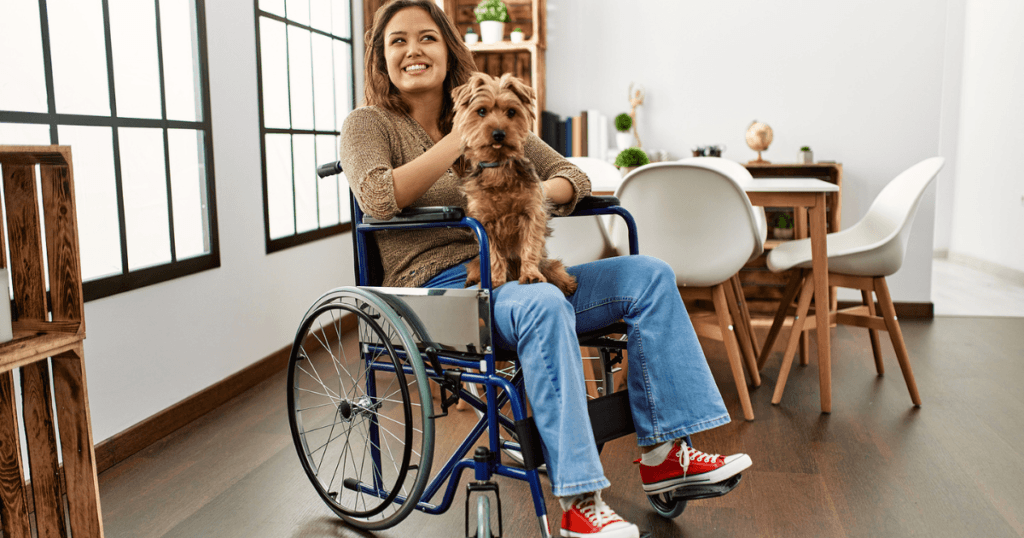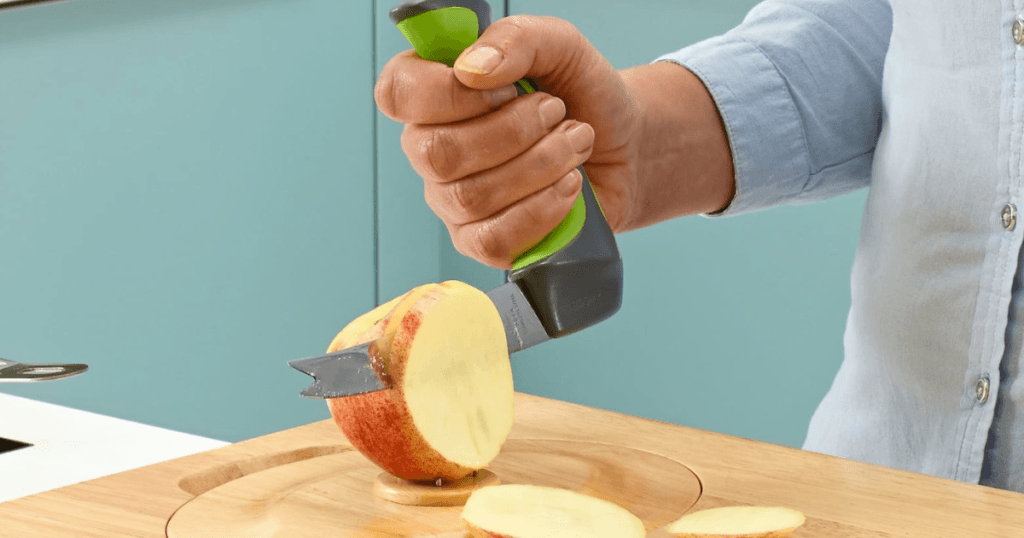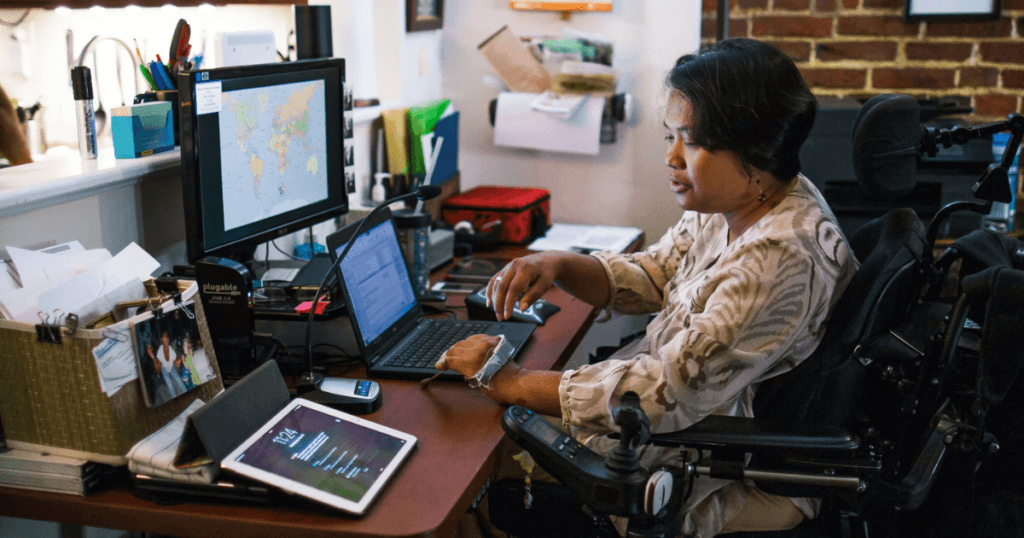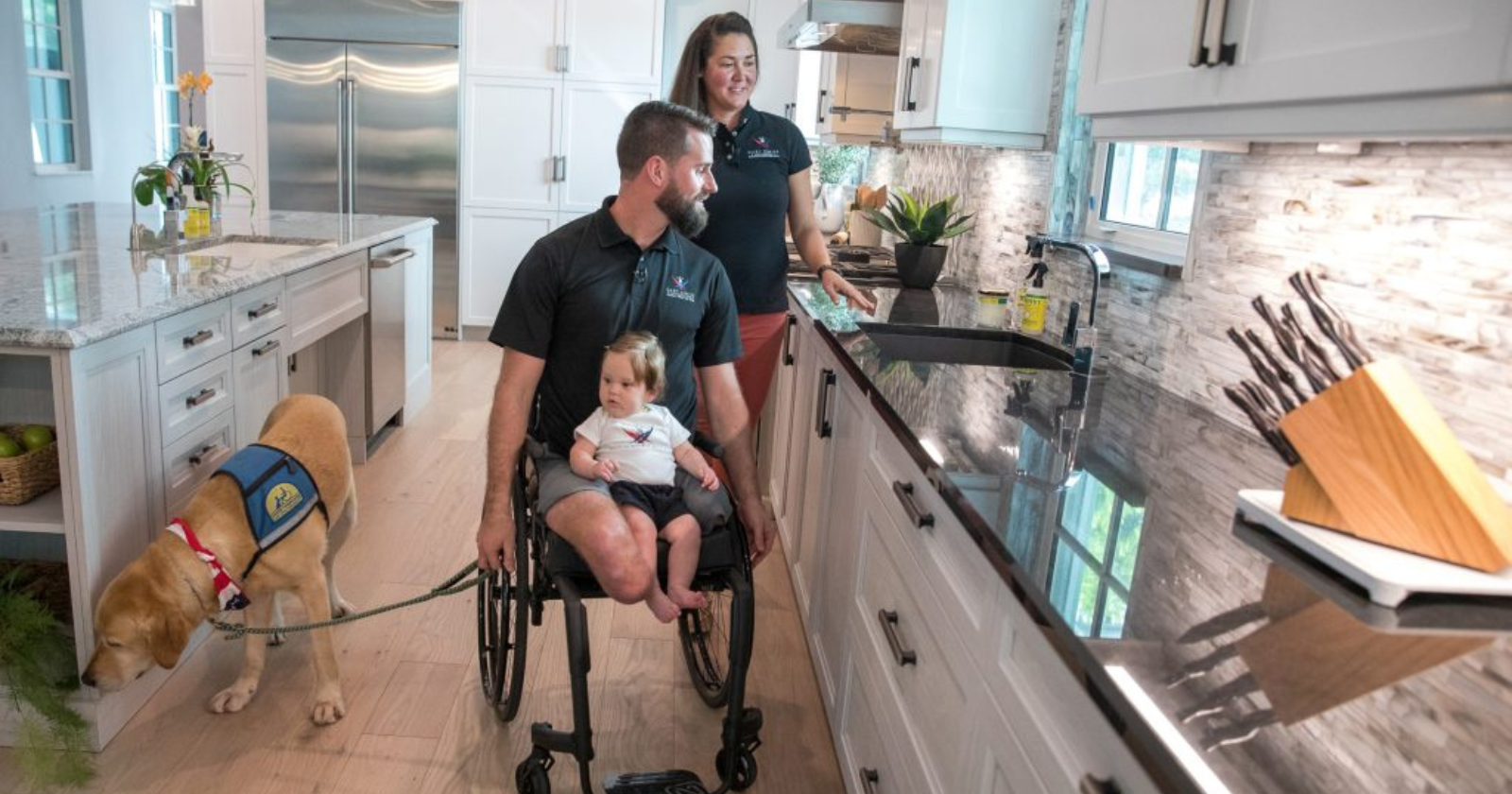The Importance Of Adaptive Daily Living AidsConsider the scenario where routine tasks, such as dressing oneself, preparing a meal, or simply moving from one area to another, present significant hurdles.
This is where the importance of adaptive daily living aids becomes evident. These tools are more than mere appliances and instruments; they serve as extensions of oneself, providing additional support and enabling previously unattainable independence.
Adaptive daily living aids cater to a variety of needs.
Tools like grabbers for reaching high shelves, modified utensils for easier eating, button hooks for simplifying dressing, and shower chairs to enhance safety while bathing are available.
Each aid is designed to tackle specific barriers to performing everyday tasks.
When I talk about these aids, I’m talking about inclusivity and the recognition that everyone has the right to a life full of participation and autonomy.
These tools aren’t merely about assisting with tasks; they’re about honoring the individual’s desire to live a fulfilling life, irrespective of physical or cognitive limitations.
I’m here to help you understand that embracing these aids can significantly shift how people with disabilities navigate their lives.
This isn’t just a conversation about assistance; it’s also about empowerment. And that segues perfectly into the heartening possibilities when empowerment is within reach, which we will look at in the next section.
Understanding the Specifics: The Importance Of Adaptive Daily Living Aids

If you want to grasp the real-world impact of these tools, let’s get specific about how adaptive daily living aids make such a significant difference.
These range from simple devices like modified eating utensils for easier handling to sophisticated equipment such as voice-activated home systems.
In my experience, seeing these aids in action is both inspiring and telling of their necessity. For instance, adaptive daily living aids are important, as demonstrated by someone with limited mobility navigating their home environment with the help of a stairlift.
Or the independence granted by a customized vehicle control system that allows someone to drive despite their physical challenges.
But it’s not just about the physical ease provided; the psychological resilience fostered by these aids can’t be overstated.
The confidence and self-esteem boost that comes from being able to perform daily tasks independently is profound. Essentially, these aids are not just tools but enablers of self-reliance and dignity.
The importance of adaptive daily living aids becomes even clearer when considering the diverse populations they serve.
From young children with developmental disabilities to elderly individuals facing age-related limitations, these aids are tailored to meet a wide array of needs, proving that their impact is inclusive and far-reaching.
Breaking Down Barriers: How Adaptive Daily Living Aids Promote Inclusion

I’m here to help you understand just how adaptive daily living aids don’t just improve individual lives; they’re shattering boundaries that once excluded many individuals from full participation in society.
Do you realize how much of a game-changer this is?
It emphasizes how the importance of adaptive daily living aids goes beyond the physical realm; it’s about cultivating a society where everyone has a seat at the table.
These aids are not simply tools; they’re passports to community life. By ensuring that daily tasks are no longer insurmountable obstacles, the importance of adaptive daily living aids comes into clear focus.
Whether it’s a wheelchair that glides over previously inaccessible terrain or a communication device that allows for deep conversations, these devices are less about the tech and more about opening doors that were once closed.
How can we overlook the significance of adaptive daily living aids when they transform everyday challenges into opportunities for independence and self-reliance?
Now, what’s really crucial to emphasize is how the importance of adaptive daily living aids is solidified through the social model of disability.
This perspective asserts that it’s the barriers erected by society, not individuals’ impairments, that disable them.
So, when these aids break down those barriers, they’re not just assisting someone; they’re actively transforming society to be more inclusive for everyone.
A lot is happening very quickly on this front. You’re going to find out about legislation and policies that are pushing for more recognition and funding for these life-changing tools.
For instance, the Americans with Disabilities Act (ADA) in the United States is a powerful example of how the law can aid in leveling the playing field, mandating accessible public spaces and services.
Many countries are now recognizing the importance of adaptive daily living aids and are implementing similar frameworks.
Your next read is going to be even more exciting as it delves into the thrilling world of technological innovation in adaptive daily living aids.
From smart home systems controlled by voice commands to state-of-the-art prosthetics that respond to neural signals, tech is constantly evolving.
And with every advancement, the importance of adaptive daily living aids becomes more deeply ingrained in our collective consciousness, transforming lives one innovation at a time.
So let’s keep the momentum going and see what thrilling developments are happening in the tech space.
Technological Innovation and Adaptive Daily Living Aids

In my opinion, the landscape of adaptive daily living aids is continually reshaped by advancements in technology.
The importance of adaptive daily living aids isn’t just about the devices themselves but also about the innovation that constantly enhances how they integrate into users’ lives.
You’re going to find out about some pretty exciting tech upgrades that have significantly boosted the functionality of adaptive daily living aids. From voice-activated systems that control home environments to AI-powered mobility devices, each innovation is a leap toward more autonomous living for individuals with disabilities.
Choose something that resonates with you in terms of tech progress, and the chances are that there’s an adaptive aid that incorporates it. People with visual impairments can now rely on apps that interpret visual information into audible descriptions.
Those with limited mobility can operate computers with eye-tracking technology. It’s the importance of adaptive daily living aids combined with cutting-edge tech that’s truly empowering.
Looking ahead, there’s a lot of opportunity in refining these technologies even further. Imagine smart homes fully accessible for people with any range of mobility or sensory abilities. Consider the potential of robotics in enhancing physical capabilities or virtual reality environments tailor-made for cognitive therapy.
Don’t forget, this isn’t just about the users. The importance of adaptive daily living aids and the technology within also extends to caregivers, providing them tools to better support loved ones.
With smart monitoring systems and remote assistance devices, both caregivers and users are finding new ways to maintain independence and peace of mind.
Concluding Thoughts: The Ongoing Significance of Adaptive Daily Living Aids

I’m here to help you understand how adaptive daily living aids aren’t just a temporary fix; their importance extends much further.
They can transform lives, offering independence and dignity to those who use them. The personal stories of triumph and everyday victories provide a glimpse into the monumental difference these tools make.
In my opinion, it’s more than just about assisting with daily tasks; it’s about enhancing the overall quality of life. Users often report increased confidence and a renewed sense of control over their lives, which might otherwise be limited by their physical capabilities.
Choose something that resonates with you: the story of a veteran who can now prepare meals independently, or a young student who’s able to join her friends at the cafeteria table, all thanks to the importance of adaptive daily living aids.
I really hope that we, as a society, continue to recognize the incredible value of these essential tools. We should actively promote and support innovation and accessibility in this field.
Remember, the importance of adaptive daily living aids can’t be overstated. Each device, tool, or piece of technology provides a stepping stone towards a more inclusive and accessible world for all.
So, it’s our collective responsibility to advocate and support advancements that will enhance the availability and effectiveness of these life-altering aids.
What are adaptive daily living aids, and why are they important?
Adaptive daily living aids are tools and devices designed to assist individuals with disabilities or mobility issues in performing everyday tasks, such as eating, dressing, and moving around. They are important because they enable these individuals to maintain their independence, improve their quality of life, and perform daily activities that many of us take for granted.
Can you give examples of some common adaptive daily living aids?
Yes, some common examples include grab bars for the bathroom, reachers or grabbing tools, button hooks for dressing, specialized cutlery for easier eating, and walkers or wheelchairs for mobility. Each of these aids is designed to address specific challenges that individuals might face in their daily routines.
How do adaptive daily living aids impact the lives of those who use them?
Adaptive daily living aids can have a profound impact on the lives of those who use them. They can increase independence, reduce the need for personal assistance, and enhance the ability to perform tasks that are essential for daily living. This not only improves the physical well-being of individuals but also boosts their mental and emotional health by fostering a sense of autonomy and dignity.
More Adaptive Living Aids Articles Here
- The Best Lightweight Saucepans For Weak Wrists
- 3 Best Kitchen Utensil Set – A Must For Any Kitchen
- Top 3 Gel Cushion For Wheelchairs
